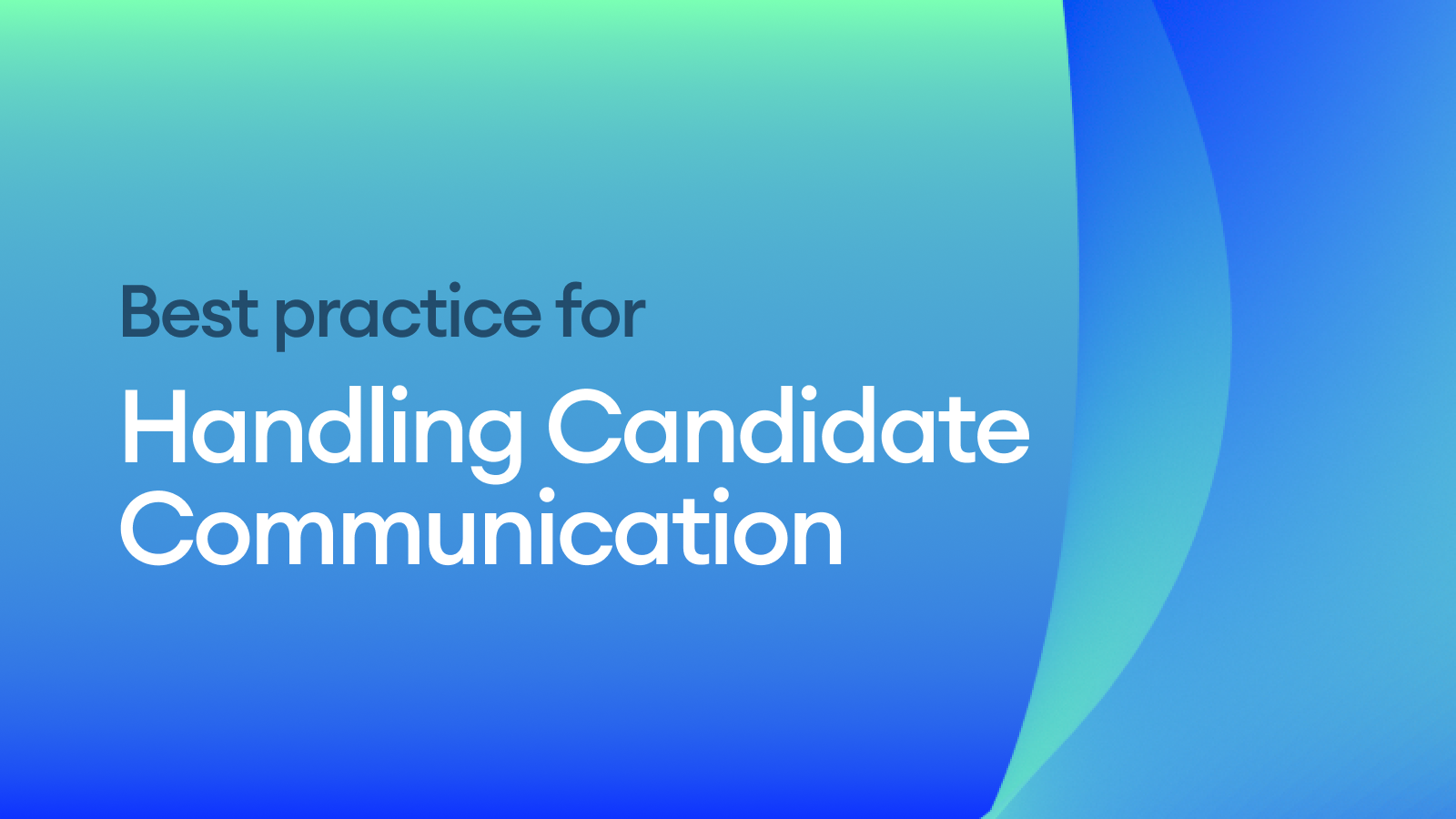Effective communication with candidates is a cornerstone of a successful recruitment process. It not only enhances the candidate experience but also strengthens your employer brand, ensuring that top talent remains engaged and informed throughout their journey with your organization. Implementing best practices in candidate communication can lead to better hiring outcomes, higher acceptance rates, and a more positive perception of your company in the talent market.
Best Practices for Candidate Communication
- Timely Responses: Acknowledge applications and respond promptly to candidate inquiries, and at each stage of the interview process.
- Clear and Transparent Information: Provide detailed job descriptions, application processes, and timelines. Outline the steps of the interview process from the start is pivotal
- Personalized Communication: Tailor messages to individual candidates to show genuine interest.
- Consistent Updates: Keep candidates informed about their application status at every stage.
- Constructive Feedback: Offer meaningful feedback to candidates who are not selected, helping them understand areas for improvement.
- Utilize Multiple Channels: Communicate through various platforms such as email, phone, and professional networks to reach candidates effectively.
- Respect Privacy and Confidentiality: Ensure that all candidate information is handled securely and respectfully.
- Professional Tone and Language: Maintain a professional and courteous tone in all communications.
- Automation with a Personal Touch: Use automated systems for efficiency while ensuring personalized elements are included.
- Follow-Up After Hiring: Maintain communication with successful candidates to ensure a smooth onboarding process.
Examples of Good Candidate Communication
Application Acknowledgment Email
Subject: Thank You for Applying to [Company Name] for [Job Title]
Dear [Candidate Name],
Thank you for applying for the [Job Title] position at [Company Name]. We have received your application and will be reviewing it shortly. Our hiring team will assess your qualifications and experience, and if your profile matches our requirements, we will contact you to discuss the next steps.
In the meantime, feel free to explore our website to learn more about our company culture and values [link to values page].
Thank you again for your interest in joining [Company Name].
Best regards,
[Your Name]
[Your Job Title]
[Company Name]
Interview Invitation Email
Subject: Invitation to Interview for [Job Title] at [Company Name]
Dear [Candidate Name],
We are pleased to inform you that you have been selected to interview for the [Job Title] position at [Company Name]. We were impressed with your background and believe you could be a great fit for our team.
Interview Details:
- Date: [Interview Date]
- Time: [Interview Time]
- Location: [Interview Location] / [Virtual Meeting Link]
- Interviewer: [Interviewer Name and Title]
Please confirm your availability by replying to this email. If you need to reschedule, let us know, and we will be happy to accommodate.
Looking forward to speaking with you.
Best regards,
[Your Name]
[Your Job Title]
[Company Name]
Tips for Effective Candidate Communication
- Establish Clear Communication Channels: Define which platforms (email, phone, HR software) will be used for different stages of the recruitment process.
- Set Communication Timelines: Develop and adhere to a timeline for responding to candidates to ensure consistency and reliability.
- Train Hiring Teams: Equip your recruitment team with the skills and knowledge to communicate effectively and professionally.
- Personalize Interactions: Use candidate names and reference specific details from their application to create a more personalized experience.
- Leverage Technology Wisely: Utilize applicant tracking systems (ATS) and CRM tools to manage communications efficiently without sacrificing the personal touch.
- Maintain Transparency: Clearly communicate the stages of the recruitment process, expected timelines, and any delays that may occur.
- Solicit Feedback: Continuously seek feedback from candidates about their experience to identify areas for improvement.
- Ensure Accessibility: Make sure that communication is accessible to all candidates, including those with disabilities, by using clear language and inclusive formats.
- Monitor and Measure Effectiveness: Track key metrics such as response times, candidate satisfaction scores, and offer acceptance rates to assess and refine your communication strategy.
- Stay Updated on Compliance: Ensure that all communication practices comply with relevant labor laws and data protection regulations.
Summary
Best practices in candidate communication are essential for creating a positive recruitment experience, enhancing your employer brand, and attracting top talent. By implementing timely, clear, and personalized communication strategies, organizations can build strong relationships with candidates, streamline the hiring process, and ultimately make more informed and successful hiring decisions. Consistently applying these best practices not only benefits the candidates but also contributes to the overall success and reputation of your organization in the competitive talent market.


